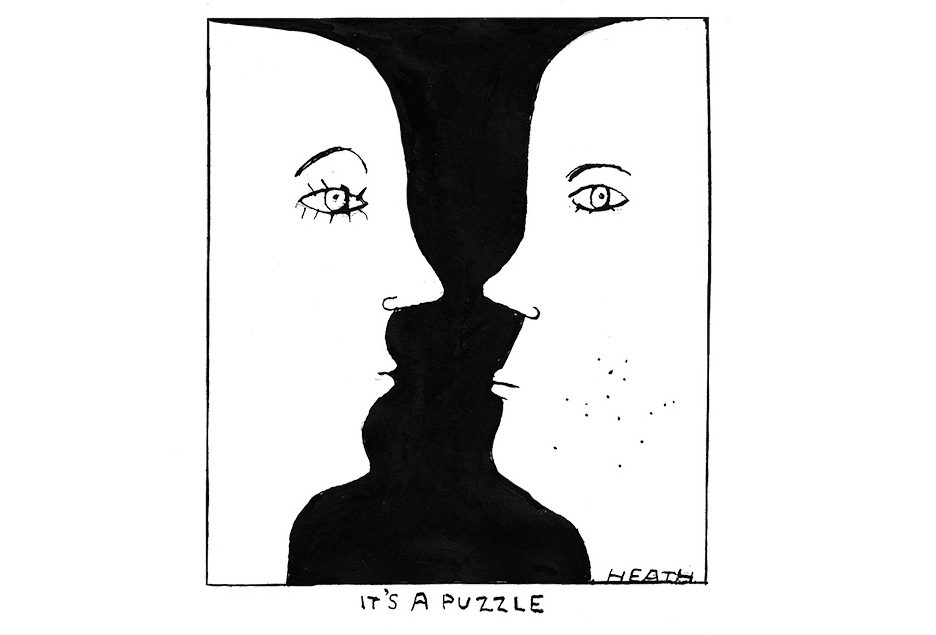What makes a relationship work? I look at the happiest, most stable couples I know and wonder what the trick is. Did they spot problems early on and talk them through? Do they simply accept each other’s flaws? We all have foibles; a relationship is simply a matter of deciding which ones we can live with.
I came across a couple recently who had their own approach: a relationship contract. Simone and Malcolm Collins are big names in the pro-natalist movement. They have made it their mission to convince people to take relationships more seriously, ideally with a view to having children. They are now married, but prior to doing so, they had in place their own contract. It comprised a long list of questions — more than sixty-two — about what kind of behavior they were willing to tolerate. It wasn’t exactly romantic — there’s even a question about how much weight gain is acceptable — but it’s an intriguing idea.
The Collinses think that as society strays further from tradition, contracts like theirs will soon be the norm. They argue that everyone craves formality. They might be right. Hundreds of variations of relationship contract can be found online. You can even contract lawyers if you need a moderator.
It isn’t exactly romantic — there’s even a question about how much weight gain is acceptable
I asked Simone what happens if one of them breaches the contract. There are no penalties, she explained. The contract has force simply because it makes explicit what each partner prefers. “If Malcolm was to break a commitment, he’d know it would hurt my feelings,” she says. “And honestly, that’s enough for me.”
What the contract seems to offer is a sense of security. It’s not surprising that people are seeking more of that right now. Dating is hard work; at times it can feel like a full-time job. Marriage rates are falling, while hook-up culture is the norm. Online dating can feel desperate, particularly when you realize you are often dating a stranger. How much do you really know about the man you’re having dinner with? After all, you don’t know his friends, family or relationship history.
There are nine chapters in Simone and Malcolm’s contract covering every conceivable area a couple might need to agree on, from fidelity to childcare and chores. Each one forces them to address every awkward discussion people are so often desperate to avoid. For example, what counts as cheating? The contract cites “prolonged kissing that is not associated with social niceties.” Is flirting cheating? Porn? Then come the rules about sex: is only one partner expected to initiate? If so, what are the signals? What are convenient times of day to have sex? There are multiple questions, too, about having children. Do you want a big family or no kids at all? How many children? What to do if one partner is infertile? What happens if you accidentally become pregnant?
Friends of mine have been in relationships for years without talking about any of this stuff. I know of a couple who parted ways after five years because they couldn’t agree on whether they wanted to have a family. Might a relationship contract have fixed that? Possibly. At least they’d have had the conversation earlier.
You could argue that relationship contracts aren’t new. Marriage is a relationship contract and the Church often encourages couples to discuss many of these issues before the big day. My brother recently attended “marriage preparation” counseling, during which he was asked similar questions. “How important are non-sexual displays of affection?” was one. Another was: “If you knew your child had a severe disability before birth, would you choose to have an abortion?” Lots of couples find this process helpful. But these discussions are probably worth having before marriage is on the cards.
The obvious risk is that it then blows up a relationship. Perhaps that’s why most people I’ve mentioned relationship contracts to think they are deranged. But I have also noticed something else: despite denouncing the relationship contract as “cringe” or “controlling,” people are also intrigued. They want to read the Collinses’ contract. A few friends have asked their partners some of the questions. There seems to be an acknowledgement that a relationship contract might be a useful tool for having difficult conversations.
While today’s swipe-right culture is unlikely to morph into a sign-on-the-dotted-line one any time soon, why not ask a few difficult questions if it helps make a relationship more stable? That said, when I raised this with my boyfriend, he was horrified. “Can’t relationships be like the British constitution?” he asked. “Unwritten.”
This article was originally published in The Spectator’s UK magazine. Subscribe to the World edition here.


























Leave a Reply